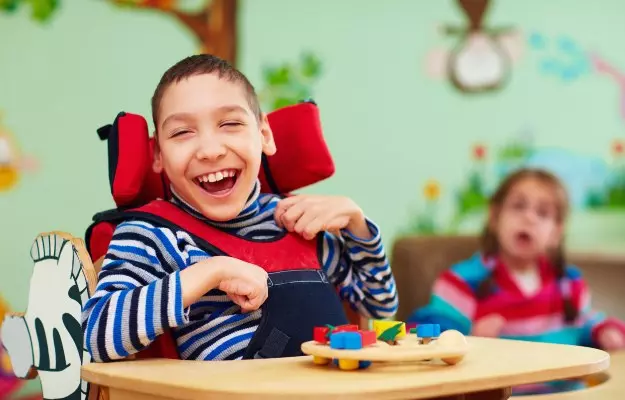What is the best way to help a child with an intellectual disability during this pandemic? Well, this can vary from family to family, and parent to parent. I will attempt to answer this question based on my training and experiences of families that I have been working with.
When living with a child or adolescent with an intellectual disability, we need to stay aware that they are most likely to make sense of the events from the perspective of their own physical and emotional safety first. For them, prioritising family members’ needs before their own is a terribly unrealistic expectation.
However, we can teach them to understand the cues.
In the present scenario—when the routines of caretakers and the children themselves have been disrupted drastically—caretakers have a dual (triple, quadruple …) responsibility of organising their own routines and meeting the needs of others who are dependent on them. The word "challenging" does not even measure this situation completely. Many caretakers have gone through crazy times.
So, the first step would be to set predictable routines for the family. As a parent, the more anticipation and preparedness you build into your life, the more emotionally calm and ready you would feel to respond to the child.
Orient the children in the house to this routine. You may prepare visual pictures on a plain sheet of paper, and direct every family members’ attention to the routine. The pictures will act as reminders and support the element of preparedness and anticipation.
Seek support from other family members. As parents, we all have set patterns and roles. It is often reflected that others should sense the needs and volunteer their hand. In reverse, if others are not spontaneously lending a helping hand, they must not want to do it.
Once the above three components are in place, it will be a sufficient point to start noticing what the child naturally enjoys or is drawn towards. Setting aside some time to get included in their activity/play would serve as a "bonding" time.
It is a common experience for parents to speak to or approach a child when they need to give an instruction or want the child to do something. Instead, if a parent consciously participates in the child’s play or rituals, the child starts associating the parent as a friendly presence.
Another common outcome of such a pairing is that the child allows the parent to prompt them. A child will not curl up or become stiff when a parent is trying to get them to participate in family routines.
When working with a child with a disability, it is common to notice many aspects where the child needs training or support. As a response, a parent may attempt teaching—and sometimes over teaching. Therefore, a parent needs to stay alert to the number of demands they make of the child. Wash your hands, have lunch, come for a shower, change clothes. All these are instructions. If a child receives many such instructions from a parent, the child is likely to either passively follow along or resist being in the parent’s company.
Select a few teaching goals for a week. Seek assistance from a professional in selecting these goals. Staying realistic about the child’s ability and focusing on daily life skills will be of paramount importance. Include them in household chores, ask small engagement in routine tasks. All these will go a long way in making your child feel included and developing an emotional connection with the child.
Go slow and stay focused. Children with an intellectual disability take much time to learn new skills.
Do not have a battle vis-à-vis academic task. Most children with disability struggle because the academic tasks (especially if these are taught at a Grade level that the child is attending) are much beyond their skill set. Pushing the child to perform tasks that are excessively difficult meets with failure, and repeated failure diminishes the motivation. Here again, know your child’s ability. Or, seek assistance from trained professionals to estimate a suitable academic goal for the child.
Stay in touch with the team of professionals (occupational therapists, special education teachers, speech and language pathologists, psychologists) who had been assisting you with your child’s intervention plans. This team could be in your child’s school or in your community. Seek their inputs in additional supports that you should anticipate and keep ready.




















